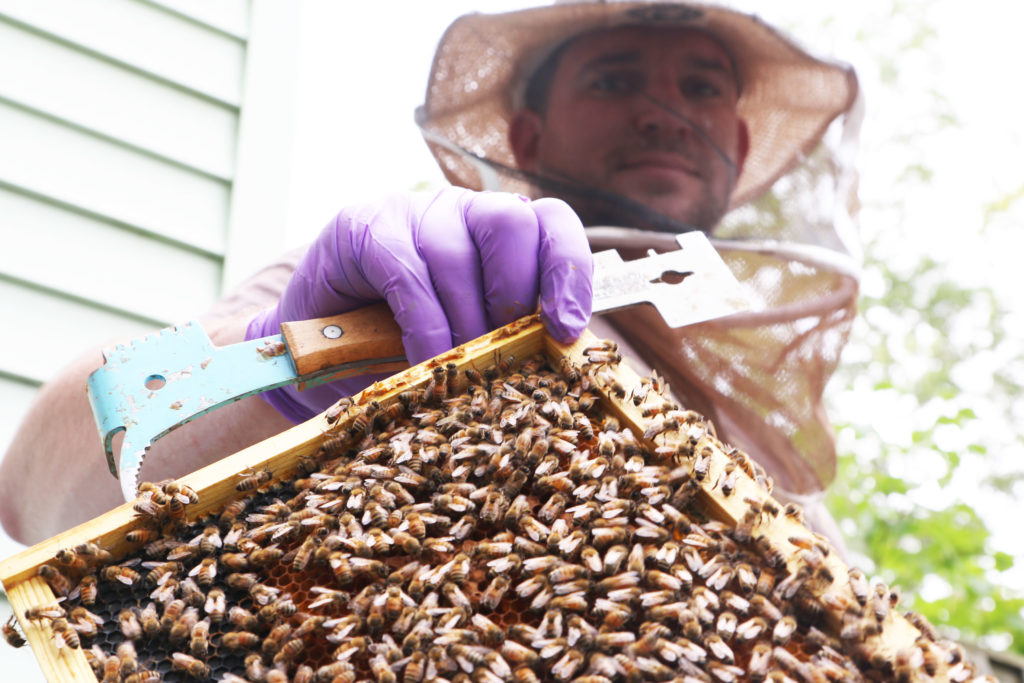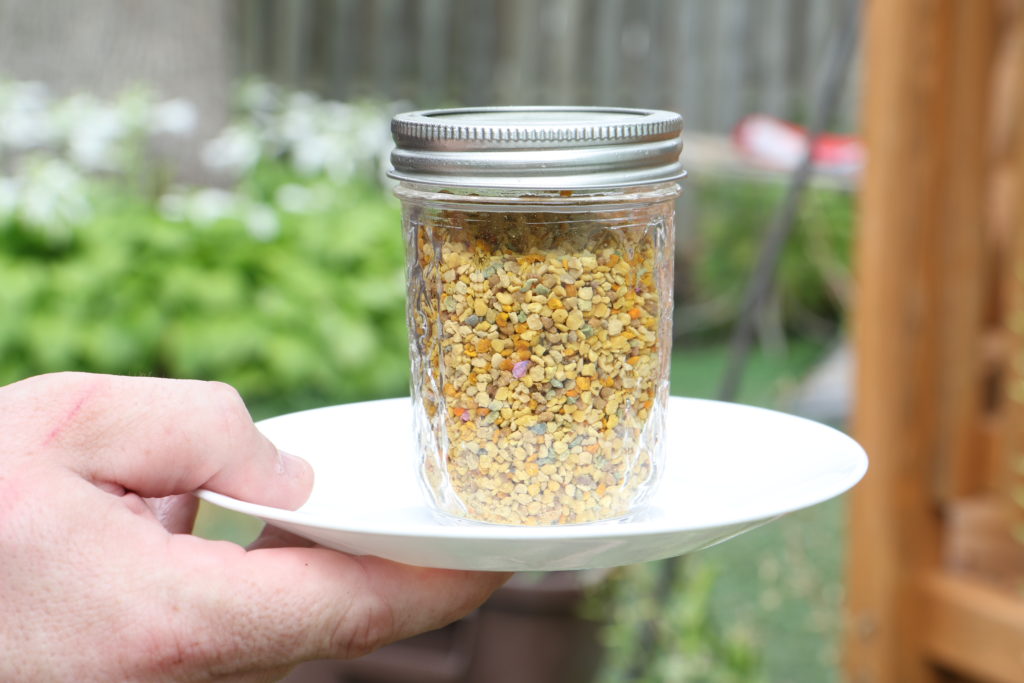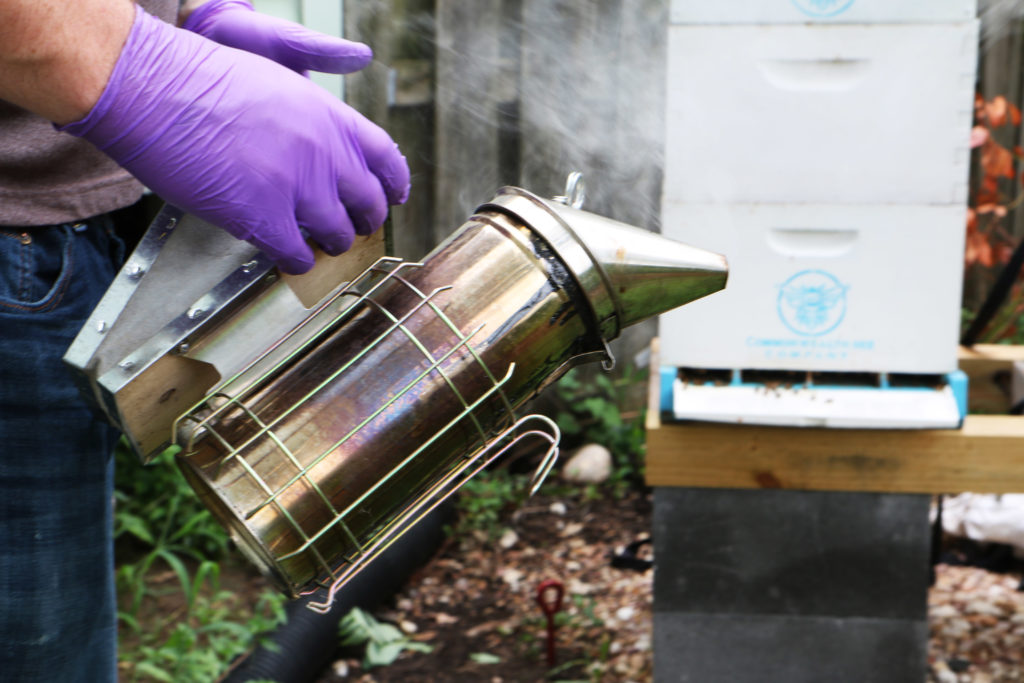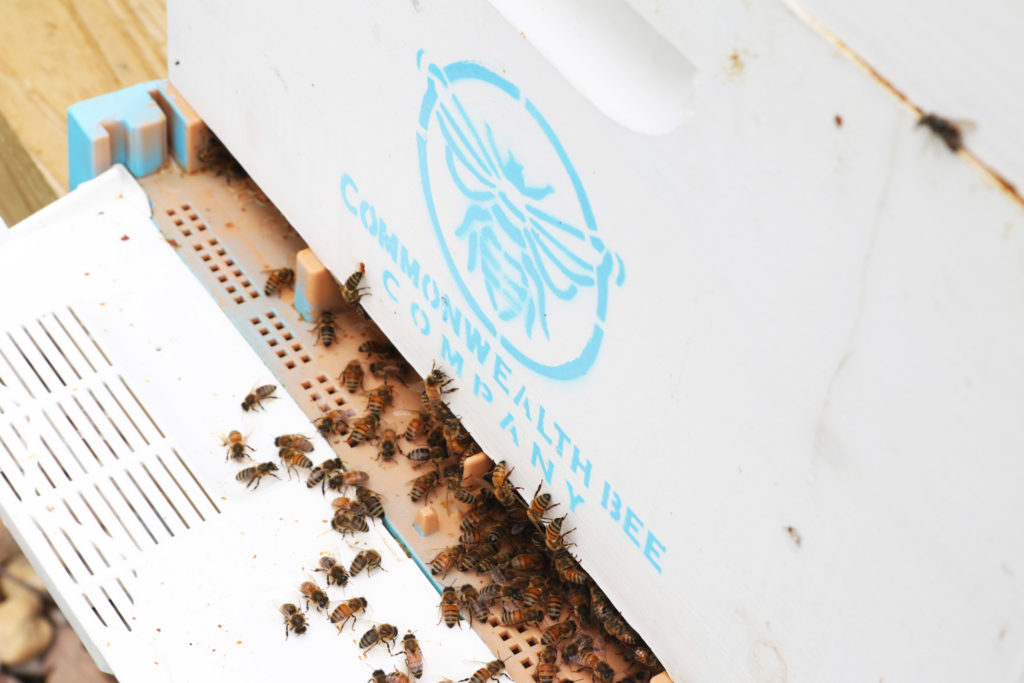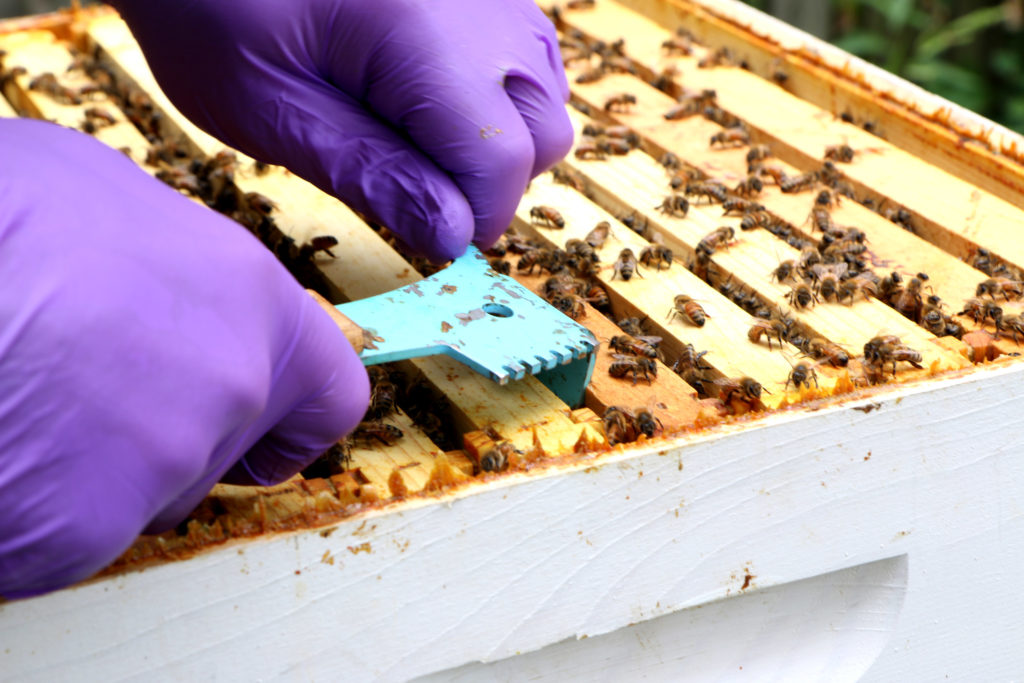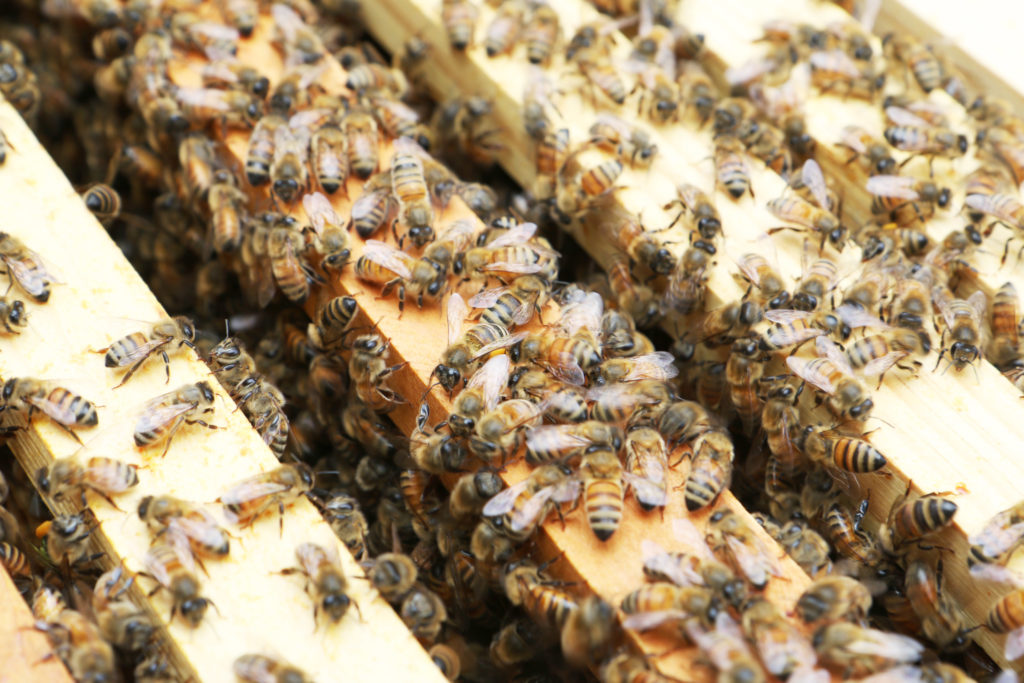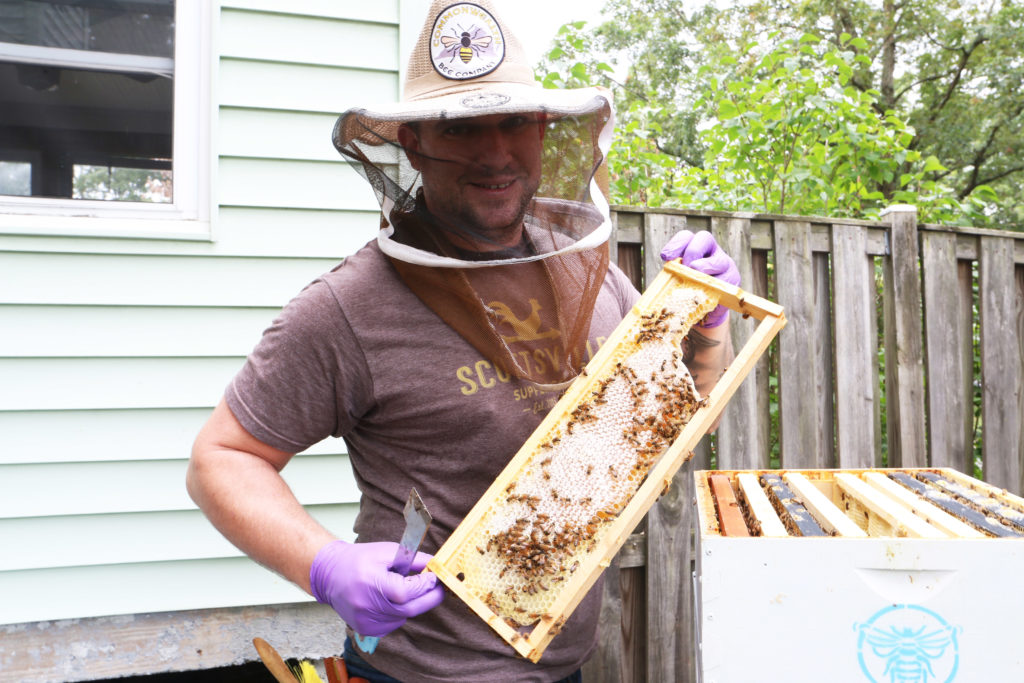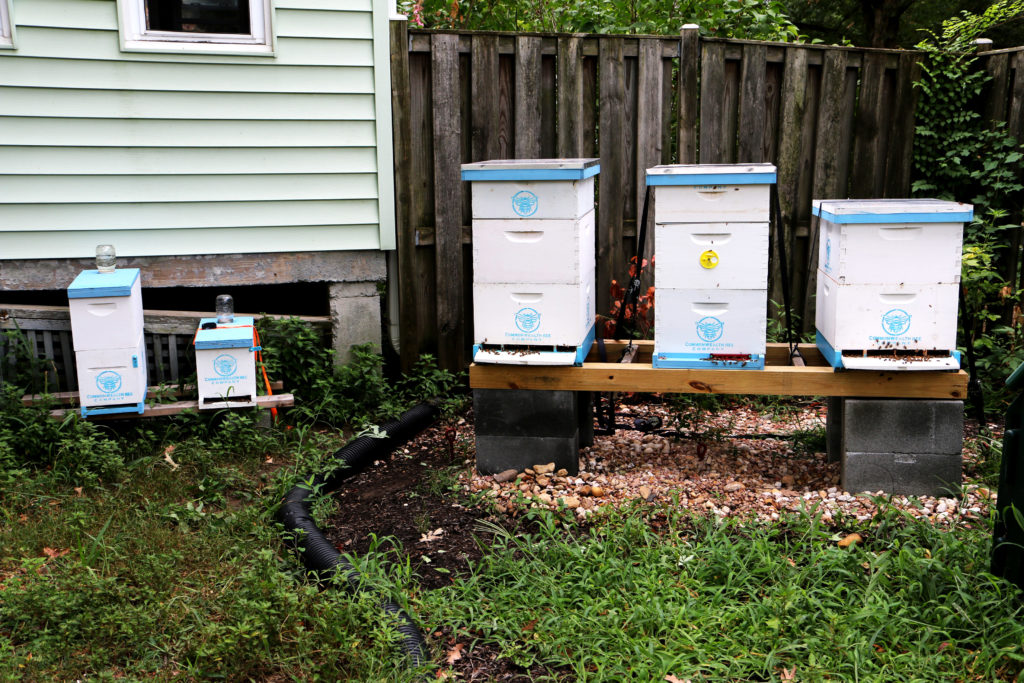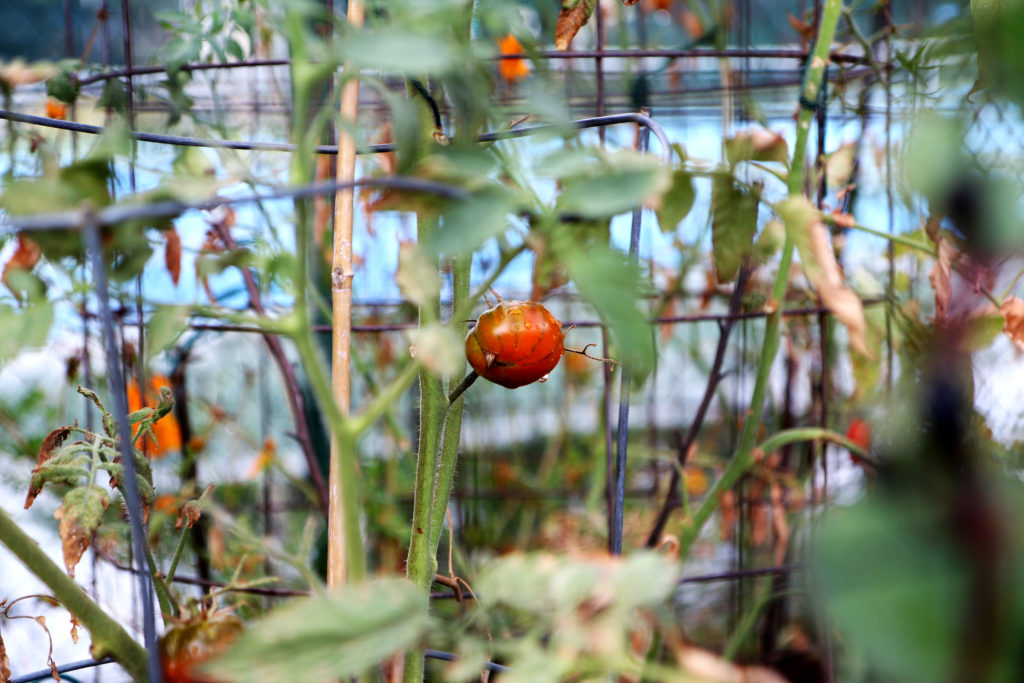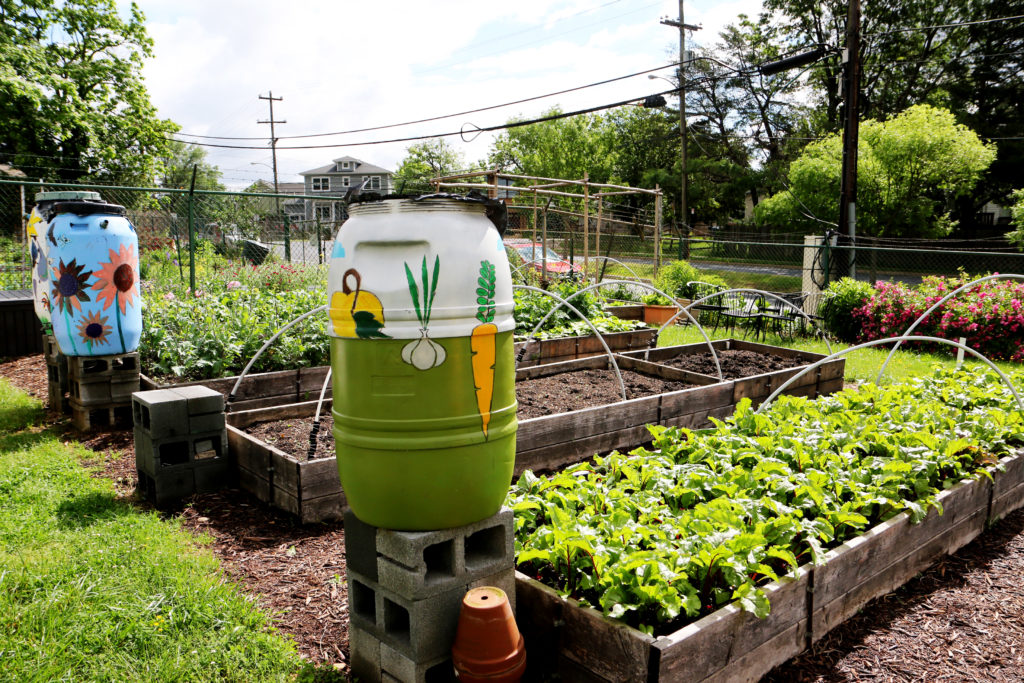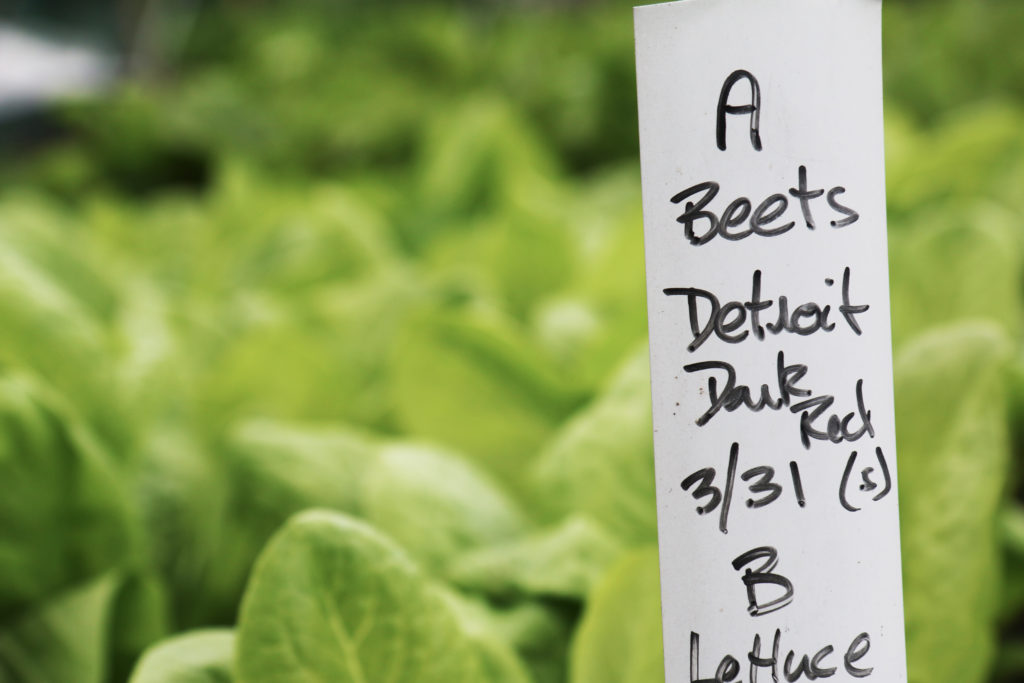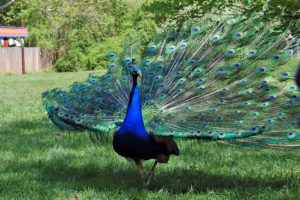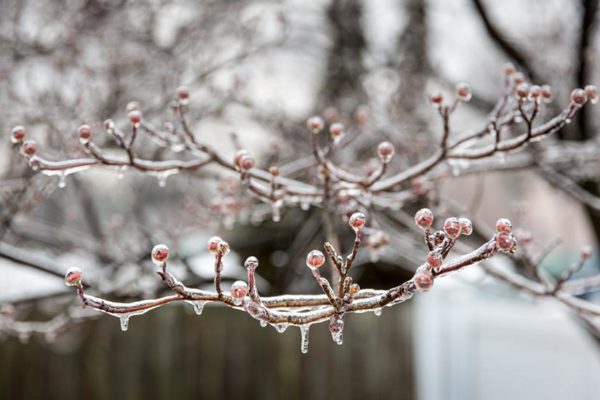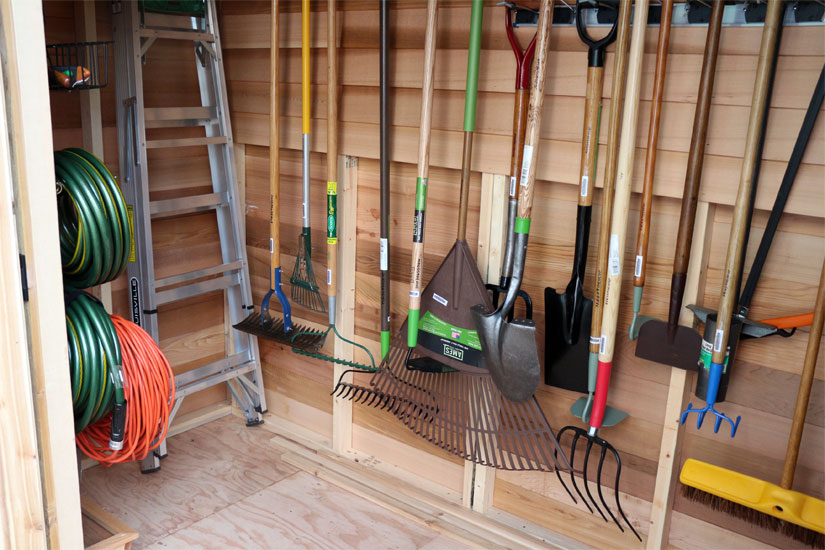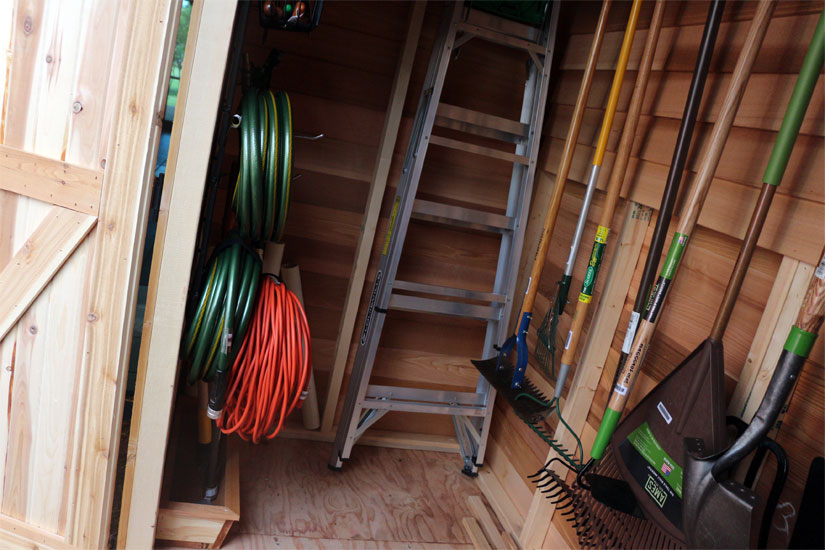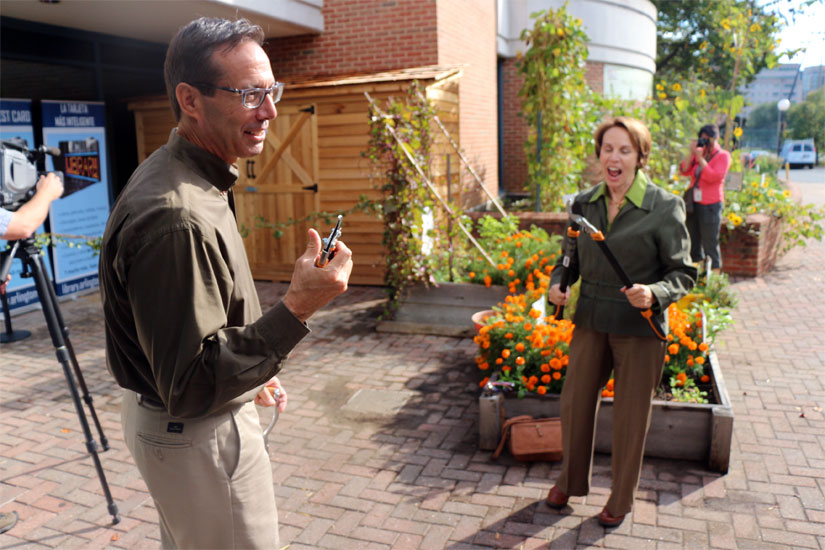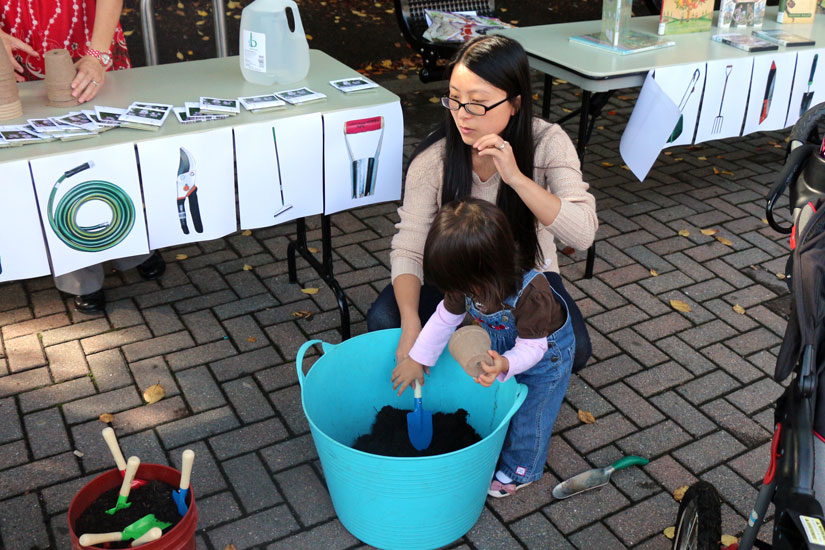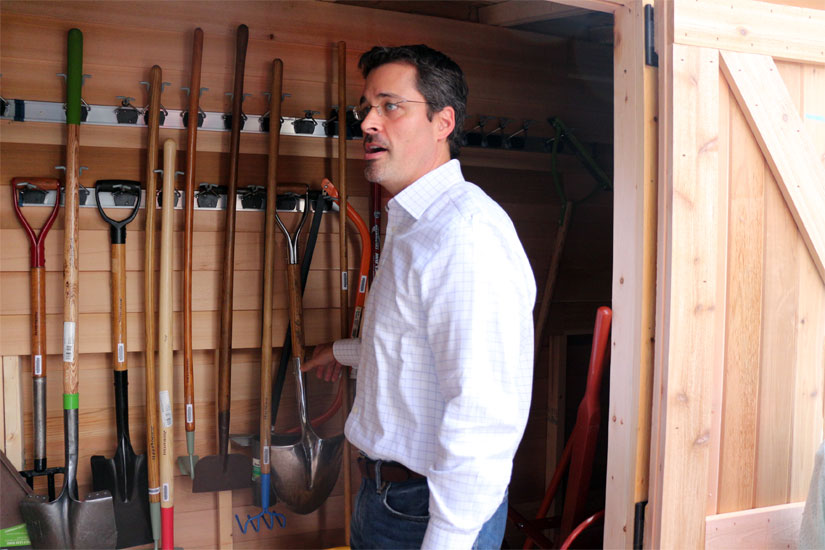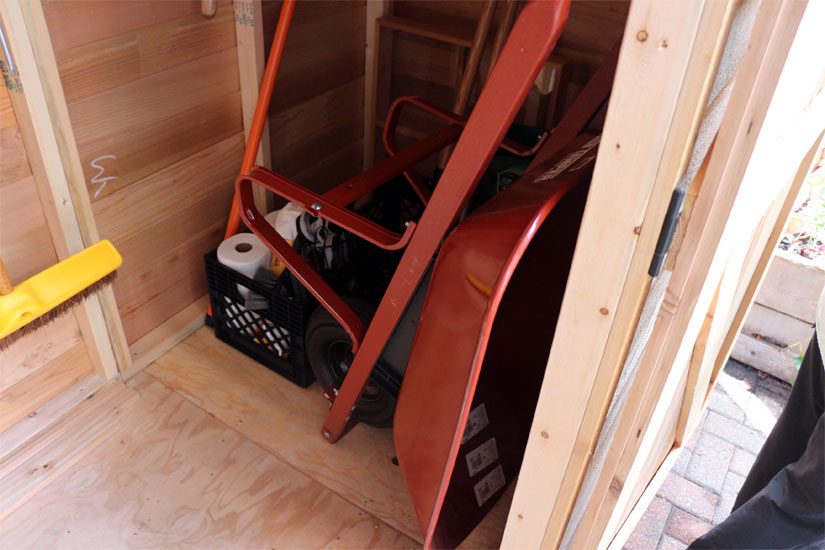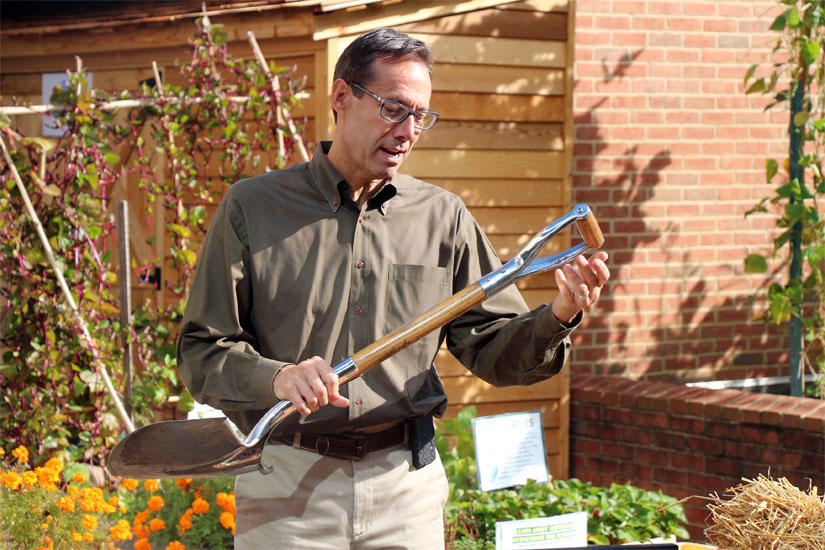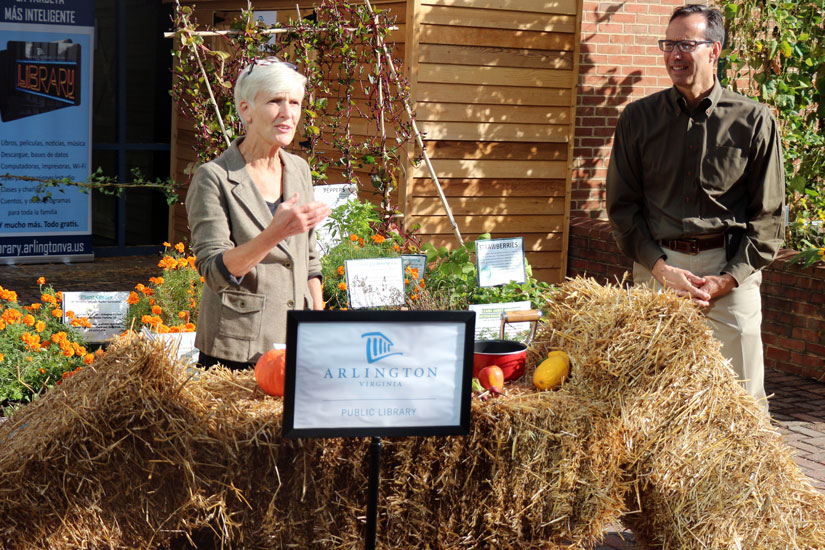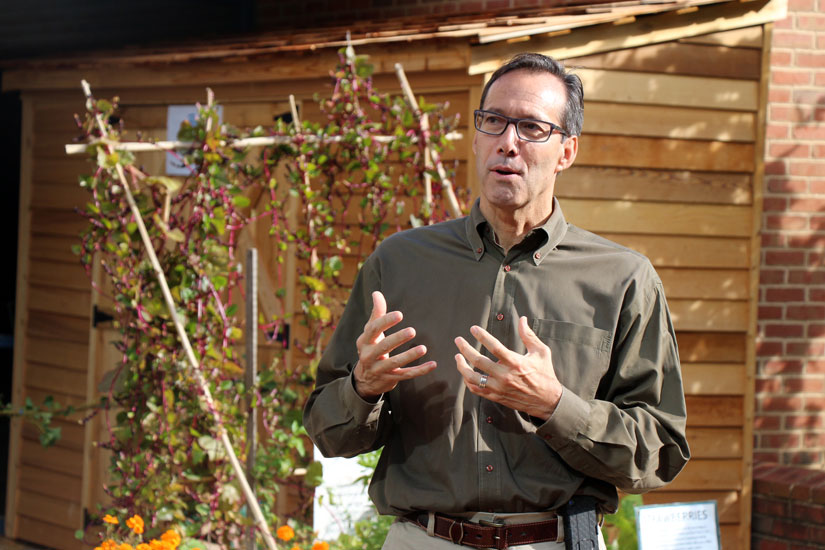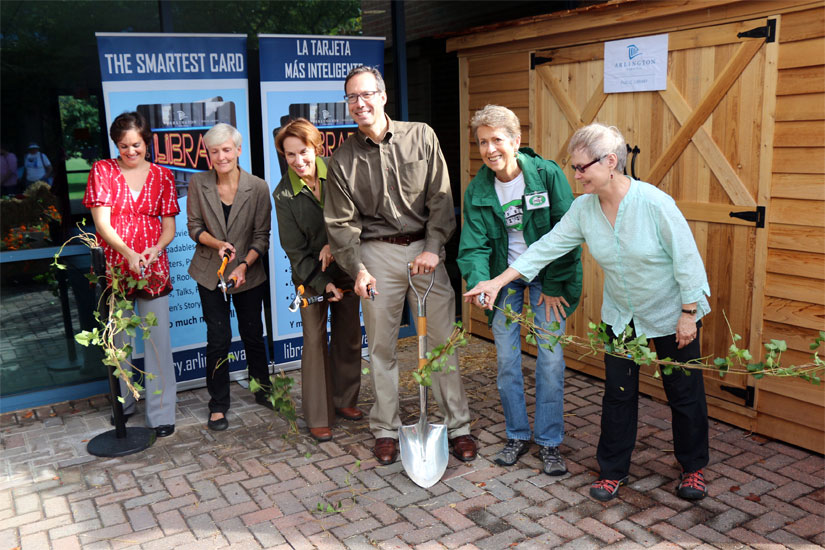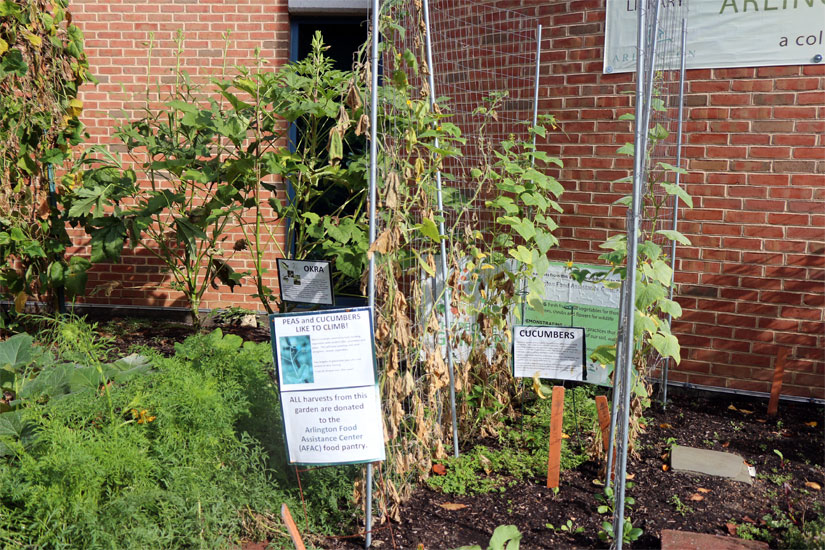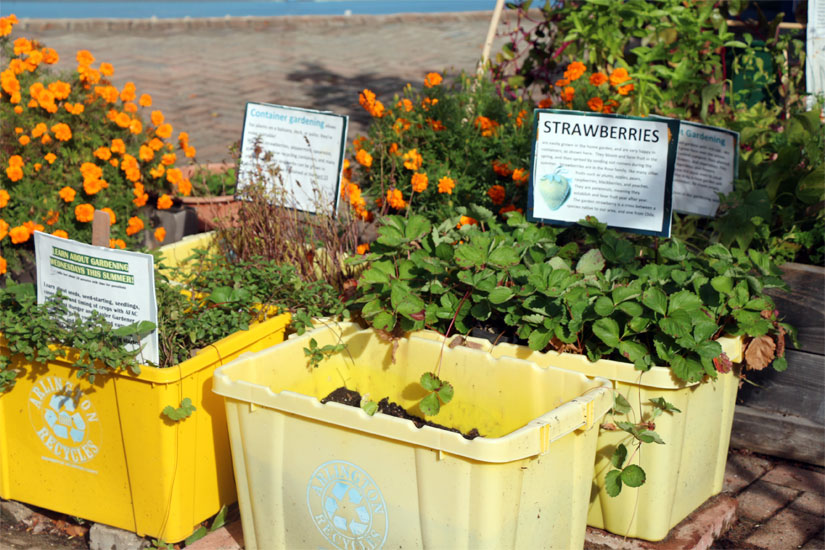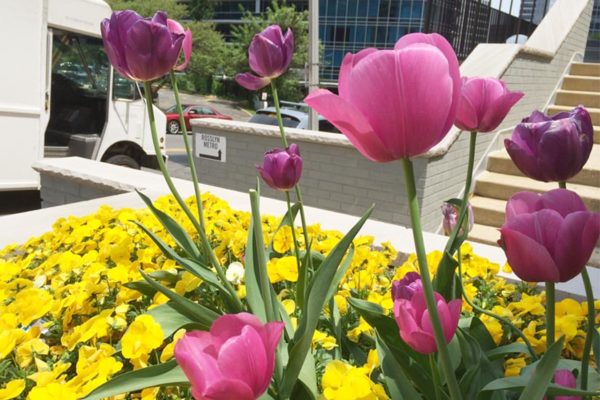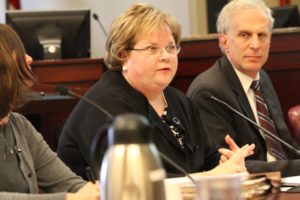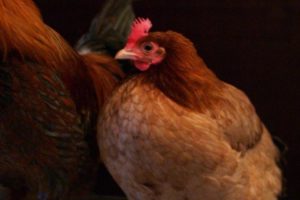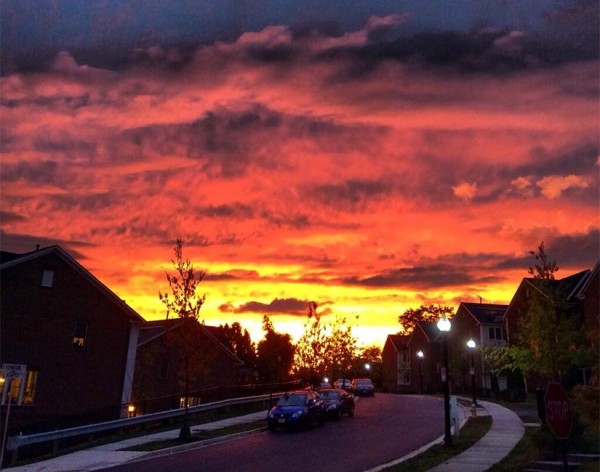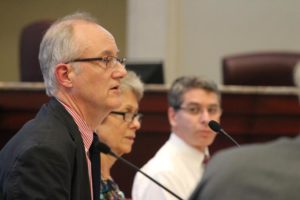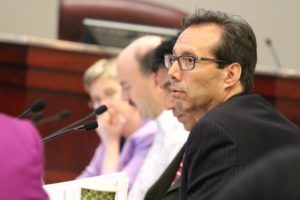An urban farming movement growing across the country already is “booming” here in Arlington, supporters say.
“There is absolutely a boom,” said Rebecca Carpenter, founder of Arlington startup Sprout which installs backyard gardens and trains people in how to grow their own produce. “I feel like it is everywhere across the country but I feel it more so in Arlington because folks here are pretty health conscious, progressive.”
Crops can be grown in urban environments in several ways, including rooftop gardens, vertical farms, and green walls. In Arlington, officials say community gardens are one of the most popular methods.
There are 379 Arlington residents who grow fruits, vegetables, or flowers in community gardens, and another 628 on waiting lists, according to Urban Agriculture Coordinator Kim Haun of the county’s parks department. That’s after the county added space for 150 more gardeners over the last three years.
“More and more people are realizing the benefits of urban farming,” said Haun. “It creates a sense of belonging, just check out a community garden on a weekend, the gardeners are family.”
Fertile Soil in Arlington
Officials told ARLnow that a combination of demographics and development opportunity make the county fertile soil — so to speak — for community gardens, and green roofs. And beekeeper Brad Garmon said these same resources made the county an ideal home for bee businesses. Either way, everyone who spoke with ARLnow reported increases in the number of people seeking agricultural training and resources.
“I would say it’s definitely been an increased interest. We’ve witnessed our membership levels increase substantially over the past year,” said Matt McKinstry, a board member of the Arlington-based Friends of Urban Agriculture (FOUA.) He said 100 new people joined the organization last year, bringing membership totals to around 500.
One reason?
“Millennials, the 20 and 30 somethings, are becoming aware of food production and the effects of industrialized agriculture,” said McKinstry. “And they’re curious to understand where their food comes from and how they can both support their local economy and as well as find healthier food options.”
According to program leader Kirsten Conrad, there are 230 people in Arlington certified with the Virginia Cooperative Extension Master Gardener Program — up from the usual cohort of about 200 people.
“I think there’s a much better understanding of the value of the native plants and supporting our birds and insects,” said Conrad of the changes in recent years.
Backyard Farmers
Community gardens in Arlington have blossomed over the past decade: from the Glebe Community Garden, which is assessable for gardeners with disabilities, to the Walter Reed Garden, which is tended by senior citizens and teenagers, to the Reevesland Learning Garden, which teaches Ashlawn Elementary students about growing lettuce.
Haun with DPR said there is no data on the number of private homeowners or businesses who have their own plots, but the county is aware of 57 private plots throughout Arlington that people use to farm crops for the Arlington Food Assistance Center, which collected almost 100,000 pounds worth of locally grown fresh produce for its food bank.
Carpenter says people are also growing produce in their backyard — and increasingly, in their front yard too.
“If you do want to grow edibles you do have to get strategic about where you want to plant them,” she said. “And the front lawn is usually the best place to do that.”
This is because front lawns typically have more sun, are flat, and have easy access to a hose. Still some challenges remain: mature trees can make some yards too shady to grow crops, and hungry deer can cause conflicts.
While growing plants in one’s yard is perfectly permissible, a movement earlier this decade to spur the growth of another form of urban agriculture in Arlington came up short: proposals to allow backyard hen raising in more Arlington yards were largely shot down.
The backyard hen issue was taken up by an Urban Agriculture Task Force, led by John Vihstadt before he was elected to the County Board, and which later formed FOUA. Despite the hen proposal stalling, some of the task force’s short-term recommendations, presented to the Board in 2013, have since been implemented, including:
- Opening a garden tool lending library
- Expanding community gardens
- Year-round yard waste collection
Urban Beekeeping
One company looking to take advantage of all the buzz around native plants and insects is Charlottesville-based Commonwealth Bee Co.


